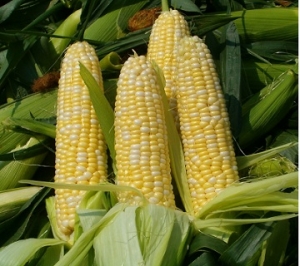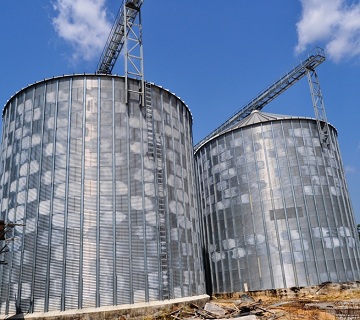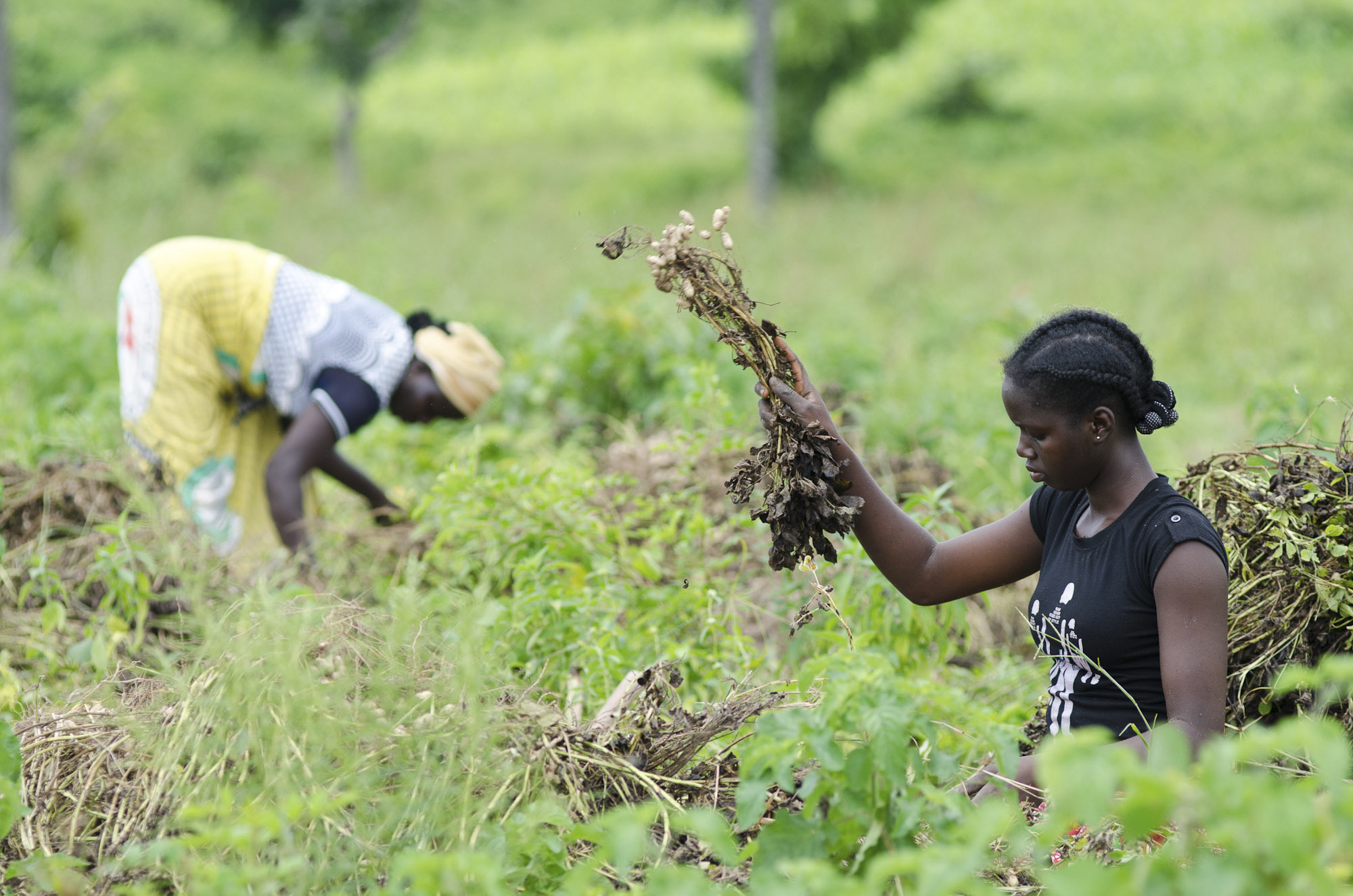
Officials of the Federal Ministry of Agriculture told Channels Television on Tuesday that 100,000 metric tons silos would be used as storage for maize during this year’s harvest.
Other silos across Nigeria would be used to store sorghum, paddy rice, soya beans and millet. But the government is looking to expand by putting in place more silos to accommodate other perishable crops.
Every year, farmers especially in the north turn out huge tonnes of farm produce which is usually more than enough for sale at the markets. The supply often times supersedes demand, resulting in wastage due to lack of storage facilities.

To limit the amount of farm produce wastage that farmers record on a yearly basis, the Federal Government introduced the silos across the country to minimise post harvest losses through effective and efficient storage.
Officials at the silos’ site explained that there were about a dozen contractors expected to deliver 500 metric tons of maize during the grain receiving exercise currently going on.
The grains are first scanned on entry before they are sorted out for proper preservation and it can be stored for up to two years.
The 100,000 metric tonne in Sheda area of the FCT is one out of seven across the federation considered the largest in West Africa.
Silos in other states were simply built with 25,000 metric tons capacity.
At the commission of the silos on Monday, the Vice President, Namadi Sambo, addressed other government officials entrepreneurs and farmers present to witness the commissioning of perhaps the largest silo in West Africa.
Mr Sambo underscored the necessity of the nation’s food storage capacity to reduce post-harvest losses, following colossal waste and inefficiency of the agriculture sector over the years.
“The Federal Ministry of Agriculture and Rural Development has completed a total of six silos with capacity of 250,000 metric tons since November 2013.
“I have directed the Central Bank of Nigeria to set aside the sum of 50 billion Naira Mechanisation Intervention Fund. This support fund would allow and speed up the full establishment of the 1,200 private sector-driven agricultural equipment hiring enterprises across all states of the federation.
“It is a paradigm shift away from the rudimentary tools. Smallholder farmers are witnessing a new dawn but certain challenges remain, which were listed by the Minister of Agriculture, Mr Akinwunmi Adesina.
“The high cost of land clearing is a major disincentive for the expansion of cultivated area especially in the southern parts of the country due to the dense vegetation while the high cost of mechanisation from ploughing to harvesting holds great challenges to farmers all across the country.
“A farmer with access to a tractor will be able to plant 10 hectares per day compared to just one hectare per day if the same operation is being done manually with hoes and cutlasses with human labour,” Mr Adesina said.
An entrepreneur, Wieber Boer, said that through a partnership, between his organisation and the Ministry of Agriculture, 100 thousand farmers in Kebbi Katsina Kono, Kaduna and Zamfara would have their commodities linked to financial markets, with a target to increase their income levels by up to 20 per cent this season.
The gigantic silos which are present across the Federation will be completed by year-end according to the Federal Government
It will also help to stabilise the cost of Agricultural produce.
The development is part of the government’s effort to transform the agriculture sector which used to be the mainstay of Nigeria’s economy before the discovery of crude oil.
The Nigerian President, Goodluck Jonathan, has expressed commitment to ensuring that the agriculture sector received needed support from the government to boost produce, with a plan to make Nigeria a major exporter of agricultural produce in the next few years.


